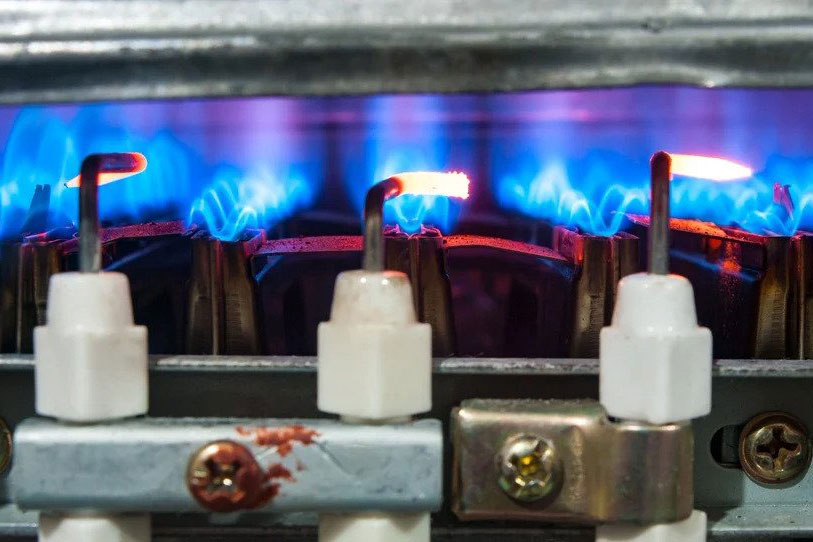
Have you ever been the last one to take a shower in the morning? Then you know how frustrating a lack of hot water can be. If you have water problems without a houseful of people, however, your electric water heater may be to blame. A malfunctioning hot water heater can cause various problems, including inconsistent water temperature, discolouration, odour, leaks and loud noise.
For practical advice, For professional advice, our team of plumbing experts are ready to help with your hot water.
With our simple guide, you can troubleshoot common hot water heater problems.
Safety always comes first. Before examining any hot water heater issues, ensure the power source is switched off. Do this by switching off the fuse connected to the heater itself.
Various water heater issues can affect water temperature. Tell-tale signs range from a lack of hot water to inconsistent hot water and water that’s far too hot.
A lack of hot water can stem from an insufficient power supply, a malfunctioning thermostat or a defective upper electric heating element. Start by checking for power problems. Reset tripped circuit breakers and replace blown fuses. Then, see if the electric water heating element has a power supply. If the element is faulty, replace it. Finally, if the thermostat has power but fails to function, replace the electric water heating element.
Is your hot water inconsistent? If so, there can be many reasons for this. These include:
To eliminate the possibility of a small water heater, check to ensure at least 75 per cent of the water is hot. Next, shut off the water supply and turn on the hot water to rule out a crossed connection. If water continues to flow, find the crossed connection.
Following this, examine whether the upper and lower heating elements have power and electrical continuity. Replace the element if needed; but first, ensure all sediment is cleared from the elements.
Lastly, if both heating elements are working correctly, examine the upper thermostat, then the lower one. If either thermostat is not working properly, replace them.
Is your water too hot? In this case, the thermostat may simply be set too high. To prevent this, remember to always keep your upper and lower thermostats set between 44 and 60 degrees celsius.
A hot water system can leak for a wide variety of reasons, such as:
To examine the T&P valve, put a bucket beneath the overhead pipe, open the valve and flush out the debris. If the leak persists, repair or replace the valve. Then, reduce excess pressure or heat and lower the temperature. Following this, look for loose pipe connections, tightening them with a wrench, ensuring you don’t tighten them too much.
Then, check all heating element bolts, and tighten them if necessary. If the heating elements continue to leak, remove them and replace the faulty gasket. Finally, check whether a leak is issuing from the storage tank. This leak commonly occurs due to corrosion or a faulty o-ring. Remember to always keep spare o-rings handy in case this problem arises.
Before leaks become a major problem, our team will stop them in their tracks.
When turning on the water in your shower or sink, you may notice rust-coloured water. This is caused by either corrosion within a glass-lined tank or a worn-out sacrificial anode rod. If the latter is to blame, you may also detect a rotten egg smell, due to the release of hydrogen. In this case, replace the failing rod with a magnesium anode rod.
To remove the odour, start by flushing the water heater. Then, clean the pipes with a solution of one litre of three per cent hydrogen peroxide to 151 litres of water. If the smell remains, replace the worn-out anode with a zinc-alloy anode. If this also fails, replace your hot water heater with one lined with plastic.
There are many different noises that can clearly indicate problems with a hot water system. Firstly, a low, rumbling sound may be a sign of boiling water. This is due to overheating, caused by the accumulation of sediment. You can fix this by flushing out the water heater.
Secondly, a high-pitched, whining sound can point to excess sales on the electrical heating elements. Manage this by flushing the water heater. Afterwards, clean all scales from the elements and tank. Then, install low-wattage density heating elements with a wider surface. This improves the transfer of heat.
For more information on hot water system problems and how to fix them, please see additional info on our website.
To keep the hot water flowing, call or email the experts at Andrew J. Robertson Plumbing today.

Professional local plumbers you can trust. Call us for your domestic plumbing needs and you will not be disappointed.
Andrew J. Robertson Plumbing

Are you looking for a reliable professional for your plumbing needs?
Simply fill in the form below,
or call 0422 101 331.
"*" indicates required fields
Fill in this short form (takes 61 seconds) and we’ll contact you shortly.